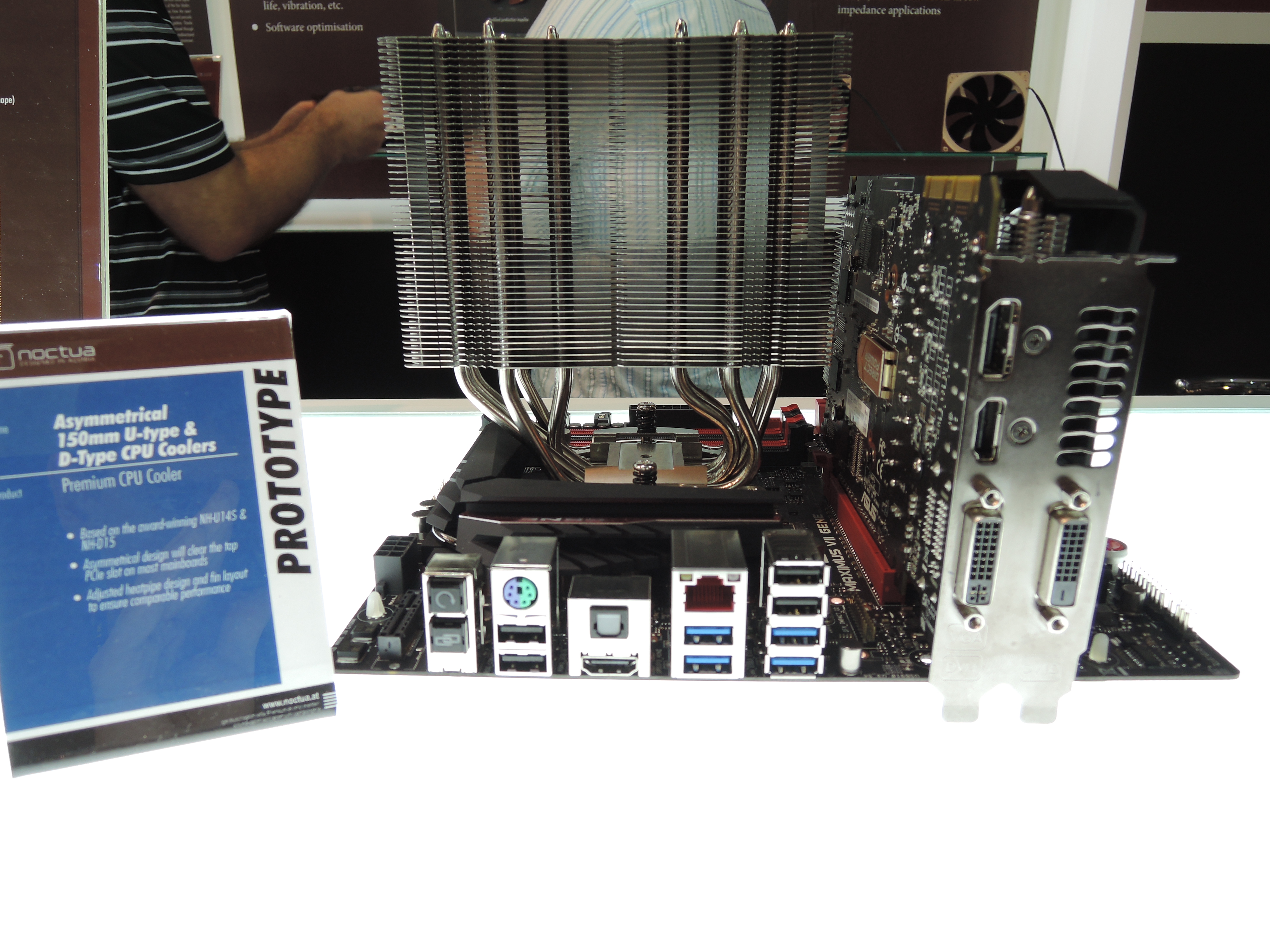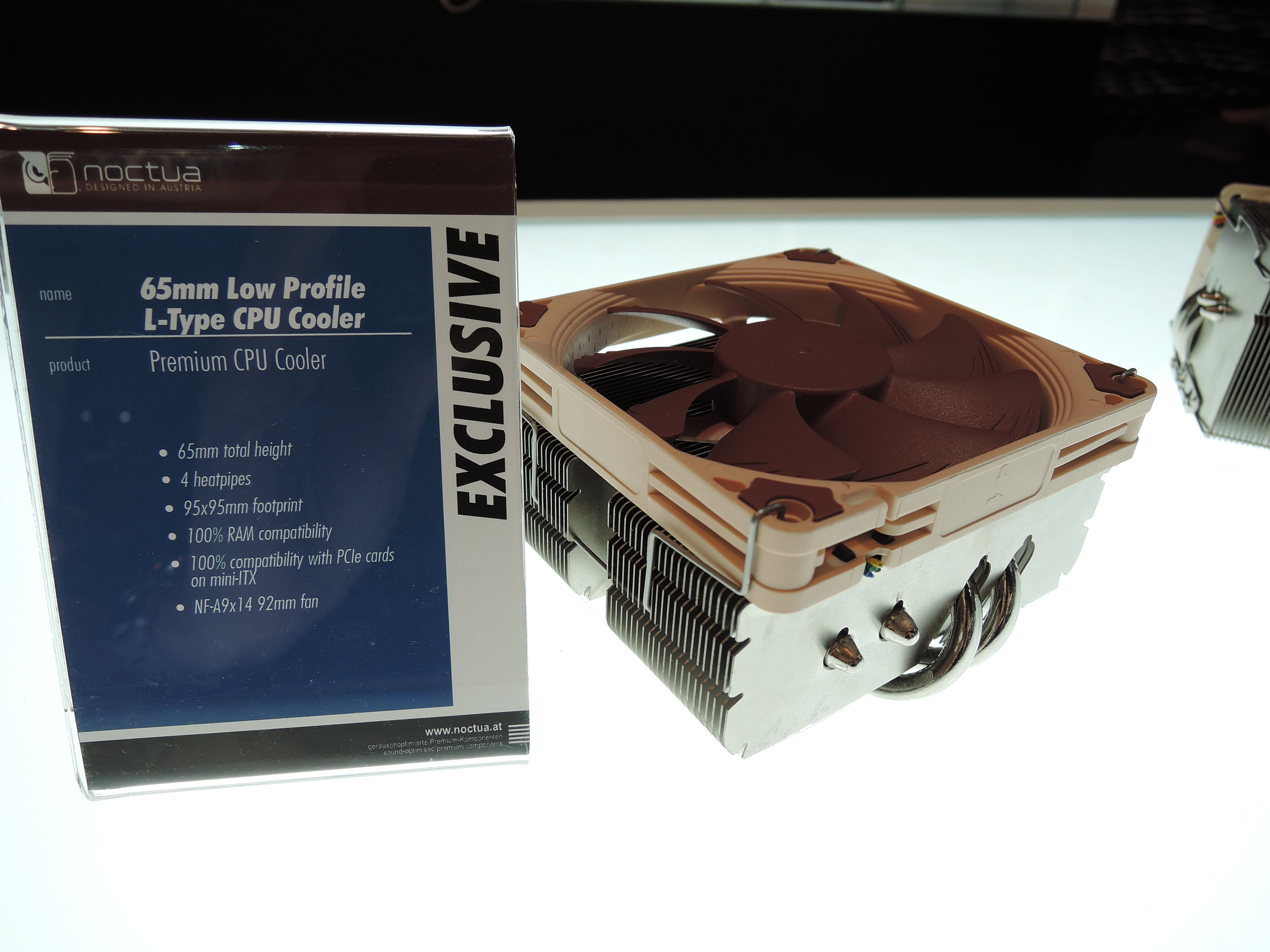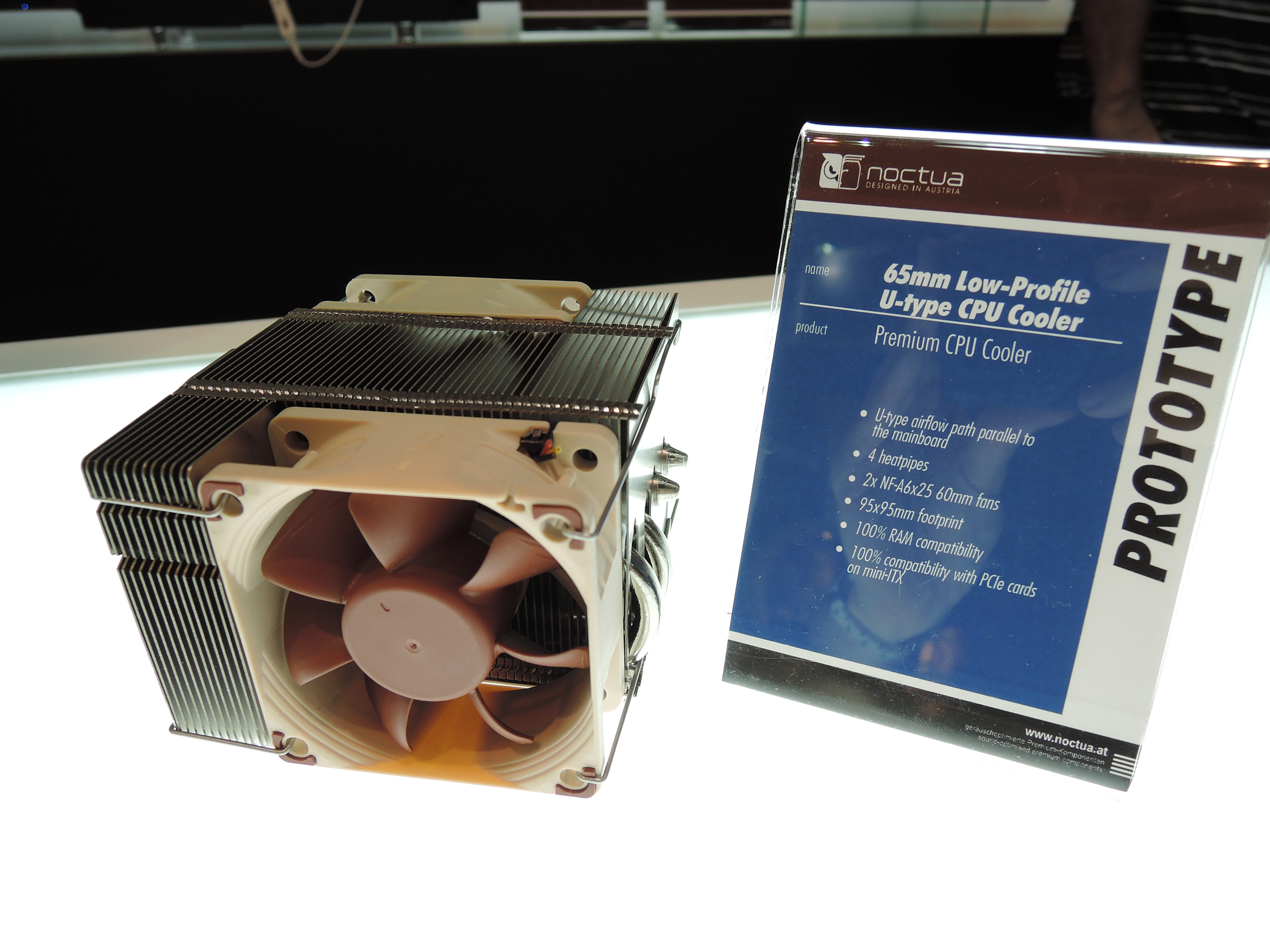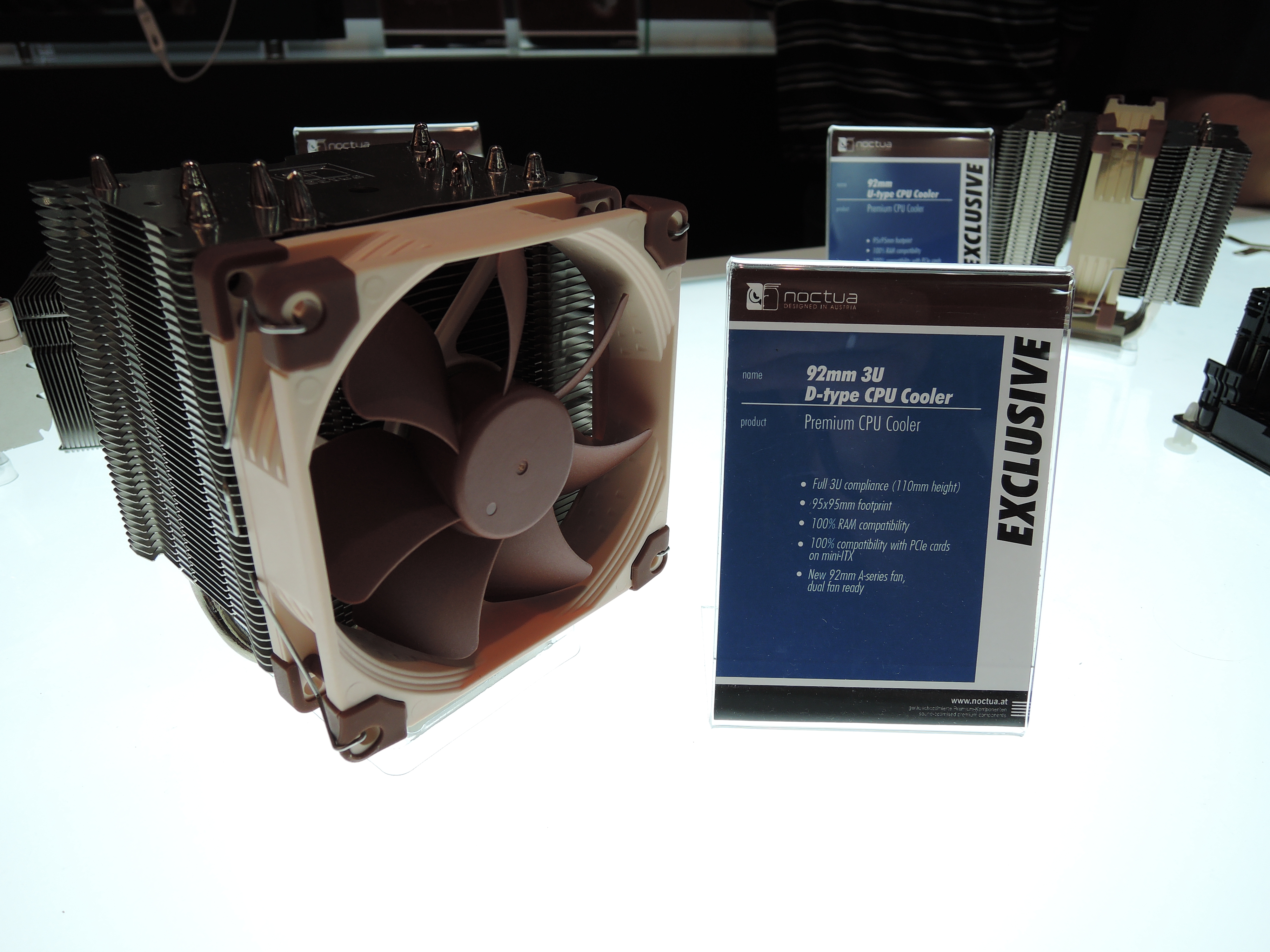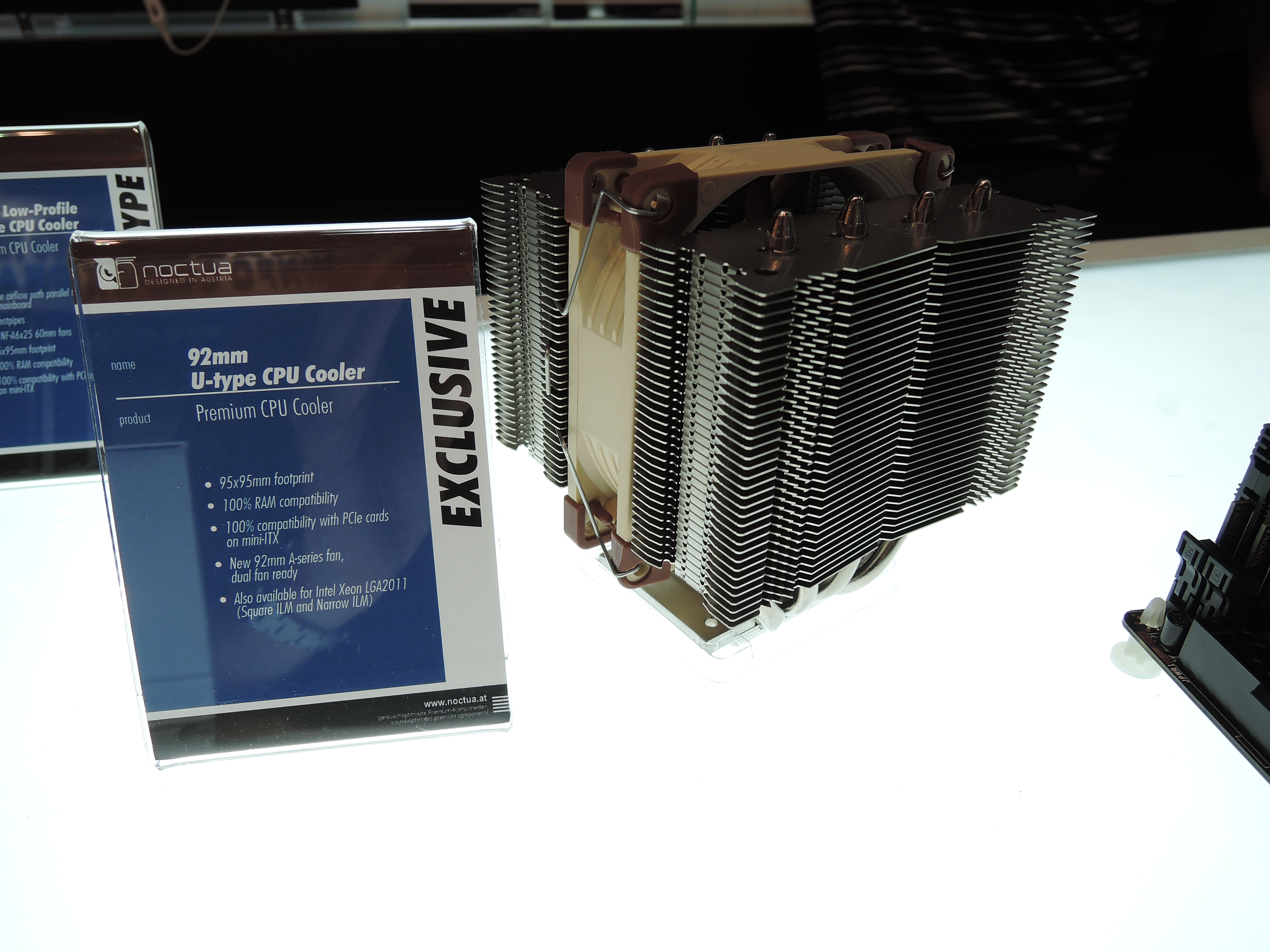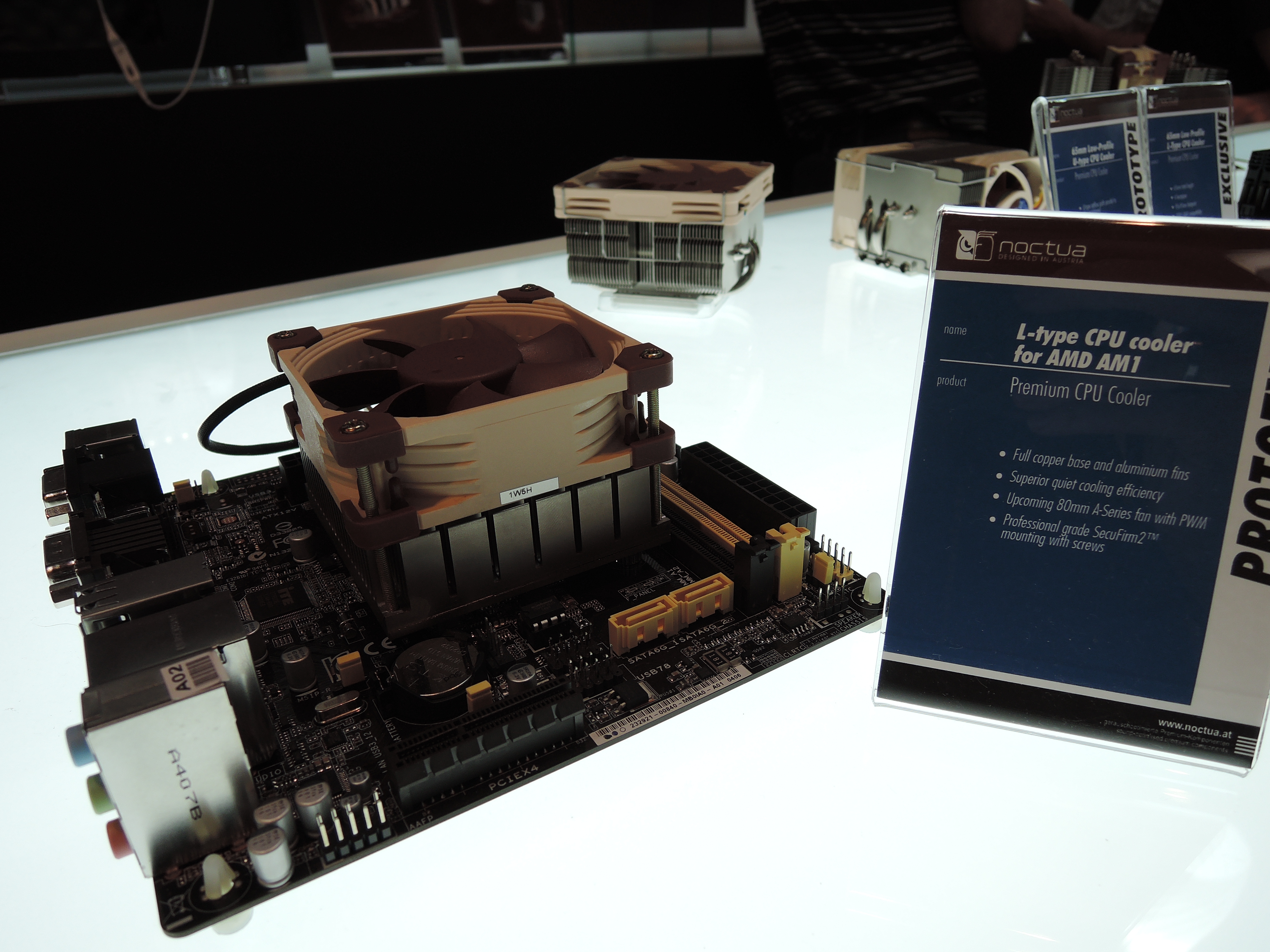Noctua's New Heatsinks Solve a Variety of Problems
Noctua had many new heatsinks on display at Computex 2014.
Editor's Note: While Computex took place last week and all of the news announcements are behind us, we're still sorting through hundreds of in-person meetings and demonstrations, picking out just a few more of the most interesting items we saw up close.
Beyond the new fans and fan concepts that Noctua showcased at Computex 2014, the company also revealed a number of new heatsinks and heatsink protoypes.
First, the company showed off asymmetrical designs based on the NH-D15 and the NH-U15S. The original coolers were perfectly symmetrical, which caused problems with access to the first PCI-Express expansion slot on some systems. The new asymmetrical prototypes would not have this problem, although they would extend a bit higher above the CPU socket, which might cause a problem with certain VRM heatsinks. These heatsinks are not meant to replace the original models, but rather to appear as alternatives so that buyers can pick whichever heatsink fits their needs best.
Noctua also put effort into the low-profile coolers for those of us with very limited space in our systems. In response to the limited performance of the NH-L9i, Noctua showed off an additional model with a taller design for improved performance. The height of the unit is 65 mm. The company also presented a 65 mm tall CPU cooler with an airflow path parallel to the motherboard; it uses two 60 mm fans to push air through the fin stack. This kind of design is particularly useful if the system has very limited space, and there is a closed panel directly above the CPU cooler.
Also on display were new heatsinks for use with 92 mm fans. These are updates to the current product stack and are 3U compliant, meaning that they will fit in 3U server racks if required. Noctua presented a U-type and a D-type heatsink.
Noctua also had a cooler for users of the AM1 platform. The cooler found on the AM1 platform is considered by many enthusiasts to be subpar, so this is a welcome addition to the lineup. The only confusing part is that the AM1 platform is a budget-oriented platform, while Noctua products certainly aren't for the budget-minded.
Availability for the asymmetrical heatsinks is set for Q2 2015, the new D-type and U-type tower coolers should hit shelves around Q4 2014, while the AM1 cooler is expected to debut by the end of the year, or early 2015. No ETA was given for the new 65 mm tall low-profile coolers.
Get Tom's Hardware's best news and in-depth reviews, straight to your inbox.
Follow Niels Broekhuijsen @NBroekhuijsen. Follow us @tomshardware, on Facebook and on Google+.
Niels Broekhuijsen is a Contributing Writer for Tom's Hardware US. He reviews cases, water cooling and pc builds.
-
dgingeri I don't understand why anyone uses the more expensive air cooling anymore. The closed loop water coolers work much better, don't have clearance issues, and are much easier to work with. The person building the machine just has to be sure to use a case that will work with the cooler. They're a little more expensive, but not that much. I've been using Corsair coolers with my last 4 builds. The H90 I used in my virtual trainer box was less expensive than the high end air coolers.Reply -
firefoxx04 dgingeri, AIO water coolers are nice and all but the noctuas trade blows with them and are much more reliable. Copper heatsinks cant wear out or fail overtime. AIO can develop a leak, pump failure, etc.Reply
So thats why someone would use a regular heatsink. -
laststop311 ReplyI don't understand why anyone uses the more expensive air cooling anymore. The closed loop water coolers work much better, don't have clearance issues, and are much easier to work with. The person building the machine just has to be sure to use a case that will work with the cooler. They're a little more expensive, but not that much. I've been using Corsair coolers with my last 4 builds. The H90 I used in my virtual trainer box was less expensive than the high end air coolers.
There is a huge reason. The noctua nh d14 surpassed almost every single all in one water cooling solution while producing the least amount of noise. The heatsink is so effective you don't even need to run the fans at full speed. I use the ULNA adapter which i think runs the fans at 5 volts and i run an i7-980x at 4.2ghz and the cpu stays in the mid to high 60's and it is inaudible compared to the case fans and gpu fans. It basically removed 1 source of noise from your pc completely that's how good it is. The water coolers their fans are louder than noctuas and the pump itself that moves the water is louder.
-
laststop311 let me add that there are situations where water cooling is better. If your case is set up a certain way where there is not a lot of internal airflow and its a big benefit to directly exhaust the heat from the cpu out of the case then go for the water cooling. If you got a large tower pc with lots of air moving through the case a very large air cooled heatsink is the optimal solution for performance both maximum oc at lowest temps as well as lowest noise.Reply
If you are really lucky you can find limited edition full solid copper heatsinks that are massive and weigh pounds. Solid copper ive seen beat the d14 by 3-5C -
Christopher1 Is it just me or do those things look sorta.... big compared to the motherboards? Are those mini motherboards?Reply -
TeamColeINC Something like that offset CPU heatsink should've came out like, 5 years ago man lol. We've already come up with ingenius work arounds for that.Reply -
TeamColeINC ReplyIs it just me or do those things look sorta.... big compared to the motherboards? Are those mini motherboards?
Yea, the first picture shown is a D14 size heatsink on a Micro ATX and the last picture is on a Mini ITX -
gsxrme Water cooling keeps the average cpu a lot 5c over room temp. Excluding hard core over clocks. Air cooling is quite dead. Look at Google and all the other big companys. Even servers are going water.Reply
